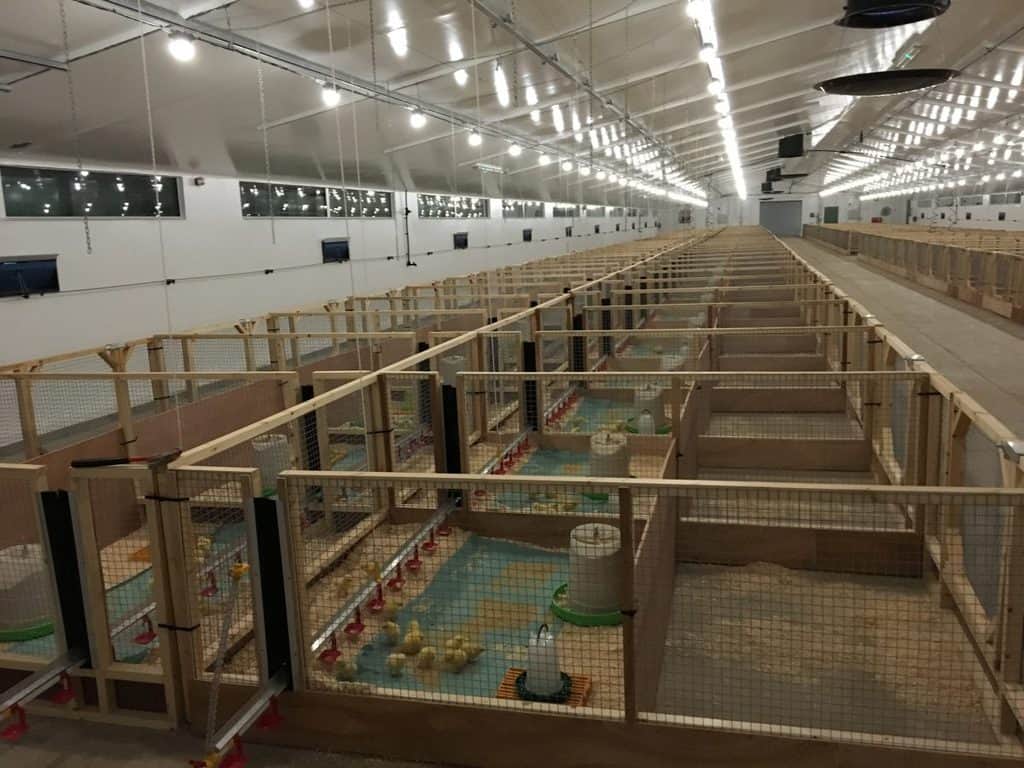A new non-antibiotic antimicrobial treatment that could control the spread
and development of antibiotic resistant pathogens in poultry is to be developed
by UK-Chinese researchers
UK company GAMA Healthcare, best known for its infection control products in hospitals, is partnering with Scotland’s Rural College (SRUC), CIEL – the UK’s livestock innovation centre, and Shanghai Veterinary Research Institute (SHVRI), to customise and trial innovative patented technology for use in poultry.
The technology, held by Aga Nanotech – a sister company to GAMA Healthcare, couples a cancer medicine delivery system with reactive, short-lived antiseptic compounds.
Laboratory trials have already shown the loaded nanoparticles to be effective in treating antibiotic resistant bacteria. The novel technology can be customised to meet the specific needs of the end-user, delivering a toxic payload to bacteria present within the animal, and can be produced cheaply and safely.
Trials are under way at the newly-opened Allermuir Avian Innovation and Skills Centre near Edinburgh, the UK’s largest poultry research facility of its kind, developed through SRUC and CIEL. Initial findings will subsequently be trialled across several commercial poultry farms in China.
The use of antimicrobial treatments in agriculture is vital in protecting animal health and aiding the production of safe and nutritious food. However, overuse of antibiotics in the livestock sector is attributed to the rise in multi-drug resistant (MDR) bacteria, constituting a significant threat to broader animal and public health.
The £1 million project is jointly funded by the UK Department of Health and Social Care’s AMR fund, managed through Innovate UK, and China’s Ministry of Science and Technology. The funding will enable the project team to identify nanoparticles possessing correct biocide release rates for animal use and test effectiveness of the technology in poultry.
CIEL’s Nikki Dalby, lead project manager, said: “There are clear veterinary and human health benefits associated with the successful implementation of this alternative technology. Further gains include improved food security, food integrity and supply chain resilience, in turn leading to much wider economic benefits.
“There is a definite market demand for alternatives to antibiotics that we believe this solution can meet and we are really excited to be working with this group on such an interesting project.”
Adrian Fellows, R&D director at AGA Nanotech, said: “Poultry meat is one of the most common sources of protein in the world, and is consumed in all areas of the world, not just wealthy nations.
“This research project has great potential because we believe, if successful, we can deliver it at a price point where it can be used in both developed and developing nations.”
Dr Jos Houdijk, Professor of Animal Nutrition and Health at SRUC, said: “Evaluating novel additives to maintain and improve gut health under appropriate conditions is key for the successful implementation of alternatives for antibiotics and to address the emergence of antimicrobial resistance in animal production systems.
“In this UK-China Innovate-UK project, we aim to deliver this at our Allermuir AISC through a series of small-scale pilot and larger-scale near-market broiler studies, prior to field testing at large scale poultry farms in China, with performance and microbiome measurements as key indicators to the success of the novel approach developed.”
Running until July 2021, successful completion of the project could see the technology extended to other livestock species.






